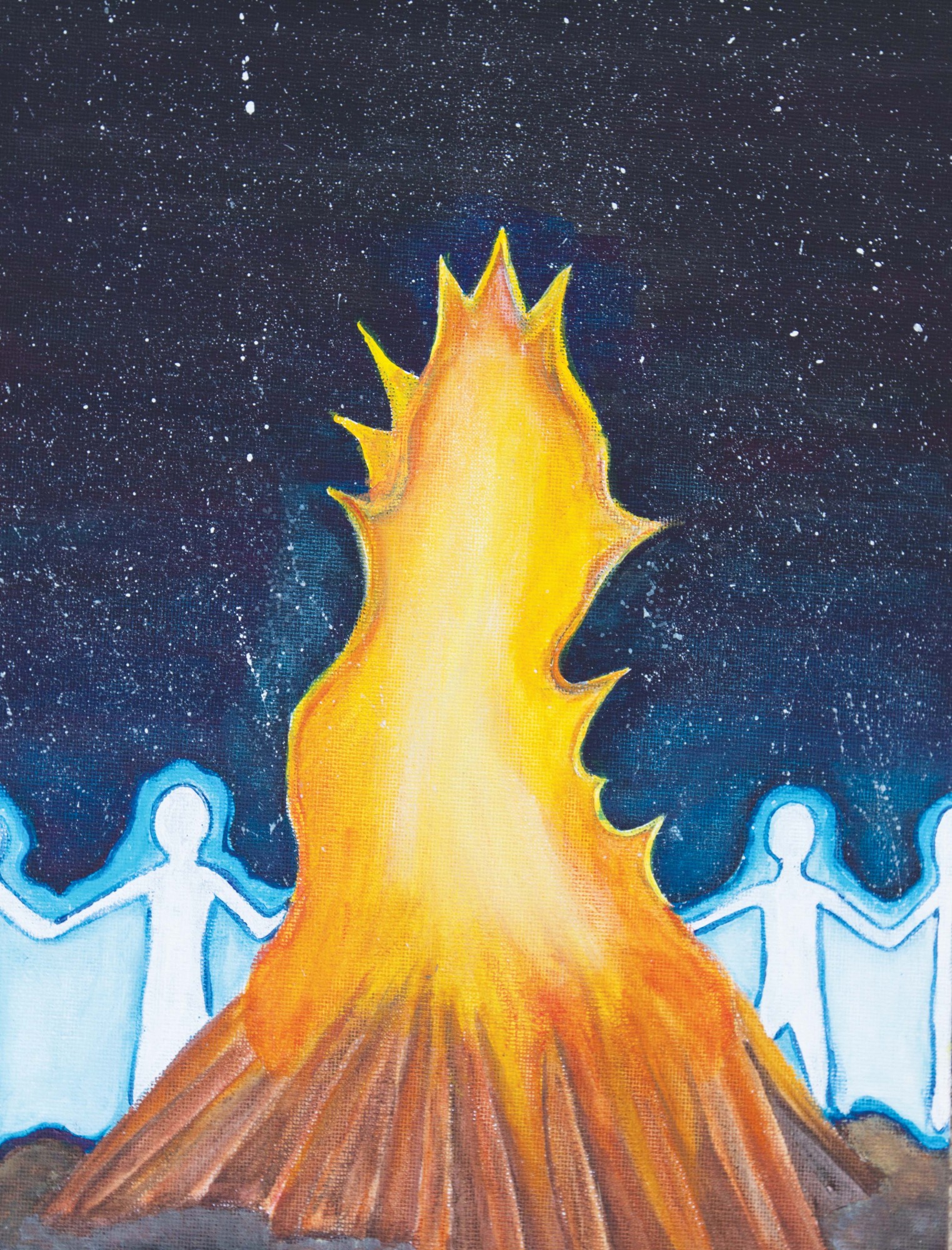Kelly Curley is a Firekeeper. There is no equivalent to his role in western culture.
“The Firekeeper is for you—to help you, to remind you, of who you are. So, you can be the best that the Creator intended you to be. Being a Firekeeper carries a responsibility, a responsibility that a lot of people don’t see, know, or understand,” Curley said.
Curley is of the Onondoga Beaver Clan and was raised in the Six Nations. He is the Firekeeper for the Healing of the Seven Generations, where he also provides counseling for alcohol and drug use, sexual abuse and parenting.
For Indigenous communities, fire has different meanings and expressions—it is related to the nature of human beings and their connections with their environment.
“When we talk about the fire, it’s not only a fire that humans make with wood, and it put on the ground and watch it. When we light a fire, and it shouldn’t be any fire, it should be the woman’s responsibility to light that fire,” Curley said.
“And then the man looks after that fire, he takes care of that fire for the duration it is to be held. Some fires are lit for a day, some are lit for three days, seven days, indefinitely, depending on the situation,” he said.
Curley said that all people are born with four fires: those of the mind, body, spirit and emotion. As they encounter hardships in life, people may lose some of these fires. When all four leave, it is the death of the person.
“So, being a Firekeeper also means helping people out, to keep them alive. It is important to talk from the heart, to give voice to experience, from emotion, listening without judgement, using good words,” Curley said.
“It is important to use positive words, there is no negativity, it is love that you feel,” he said.
Curley was raised with the Great Law of Peace, also known as the Seven Grandfather Teachings. These are: love, kindness, sharing, truth, humility, courage and respect.
“In our culture, there is God or the Creator, and then there is me [the person]. And what God gave everyone is freedom. Our teachings are all inclusive,” Curley said.
“We don’t exclude anyone. That is the Indigenous way, that is my people´s understanding. I may educate two people a day to give them a better understanding. But at the same time, there are thousands of new immigrants every year. And I would love to talk to them about us,” Curley said.
At 13, he was forced to enter a residential school, where lived until he was fourteen. During this time, he experienced and witnessed extreme violence. He was then placed in foster care and, at 19, began to use alcohol and drugs to erase his pain. When his wife finally told him he had a problem that he needed to fix, Curley worked to better himself and he did.
Curley became one of the four representatives from Six Nations to sue Canada for the residential school abuses. He said that society is teaching the opposite of the Great Law of Peace—hate, rejection, greed, lies, arrogance, cowardice and laziness—which then leads to substance use.
“The problem is a lot of people have no life or socializing skills. No politeness, no manners, they have nothing. They even don’t have any morals. Because that’s what that society has taught them—the seven deadly sins. And they use alcohol and drugs to accomplish their goal. That’s the problem.”
A Firekeeper helps people regain balance and become the best person they can be.
“So, being a Firekeeper is what I have to do—help people mentally, physically, spiritually and emotionally, to help them to maintain a balance in life. So, they can become the most productive human being they can be. A Firekeeper is for you, to help you, to remind you of who you are. So, you can be the best that Creator intended you to be.”
A Firekeeper is an important position within a community, it is passed on from person to person for countless generations. At first, Curley said he took the position lightly. He thought that his only role was to put tobacco in the fire, then offer prayers and thanks.
“But as I grew older, I came to realize that being a Firekeeper is much more than that. Because I also have to keep the fire within the individual alive” he said. ”
“One day, when my granny was explaining the Wampum belt to me [ a visual memory keeper that help record history and communicate ideas], I asked her who I was in life, and she said, ‘you are not a chief, you are not a teacher, you are not fortune teller, you are not a seer, you are not a medicine man’. So, I replied, ‘if I am none of those, what am I ?’. And she said, ‘you are a reminder to the people of who they are’,” Curley said.




Leave a Reply